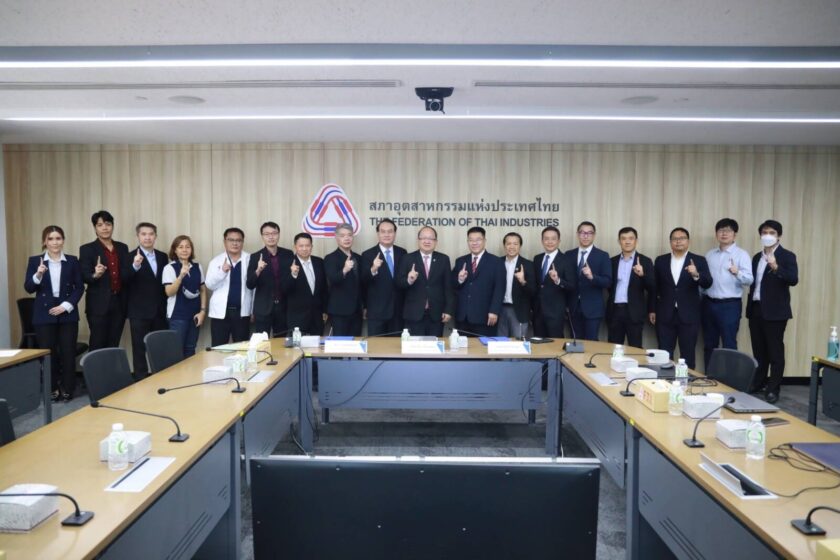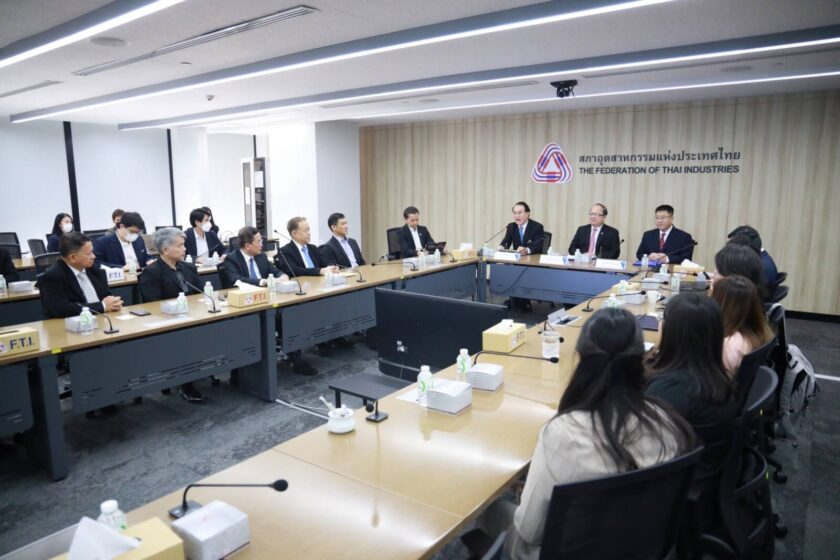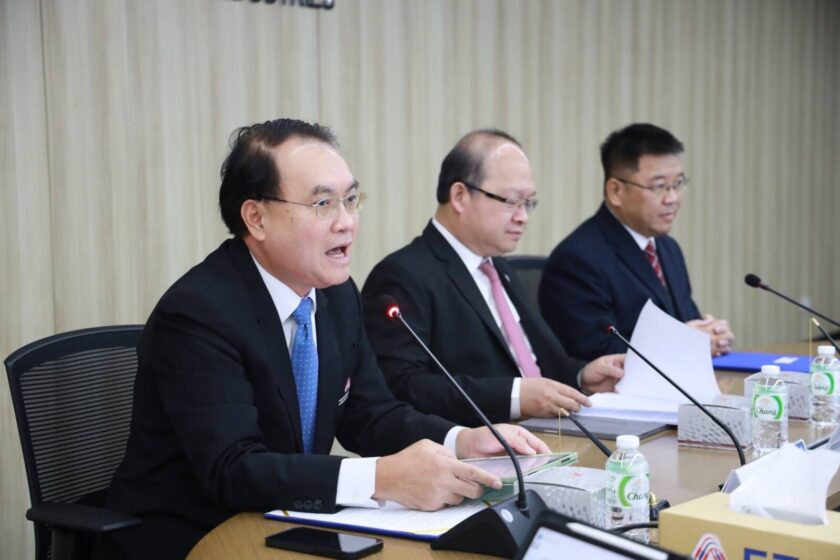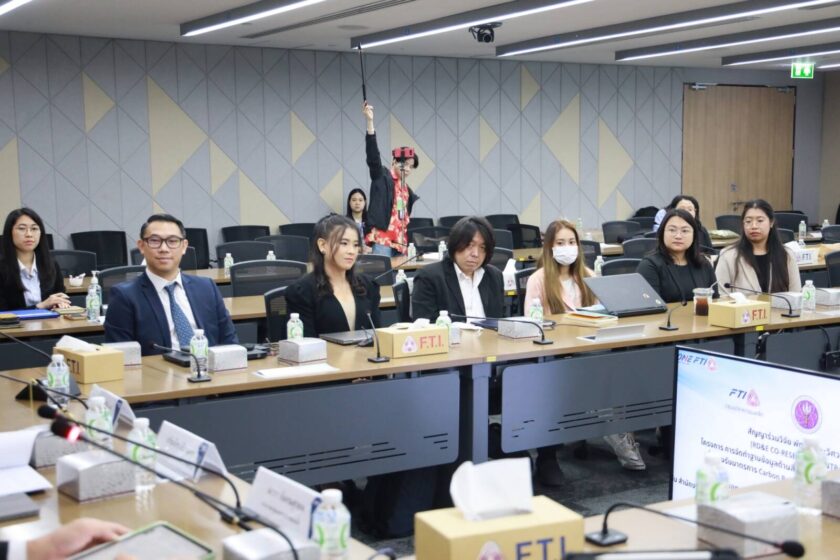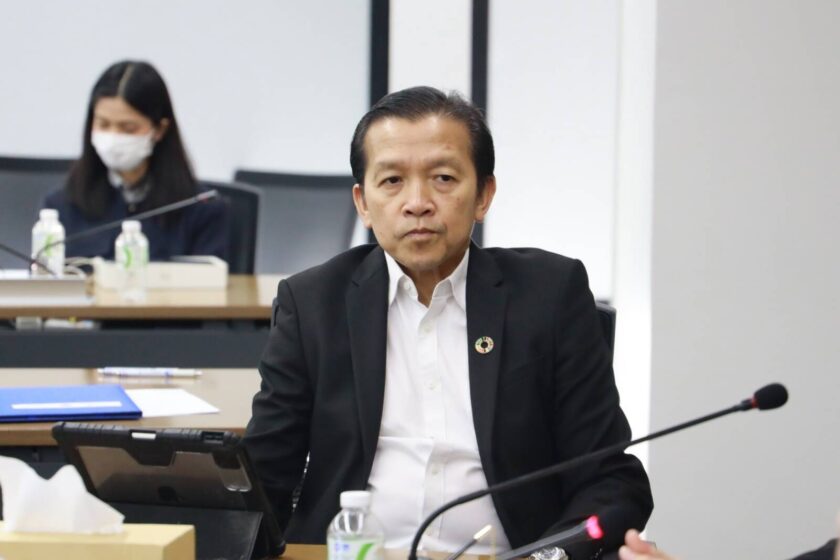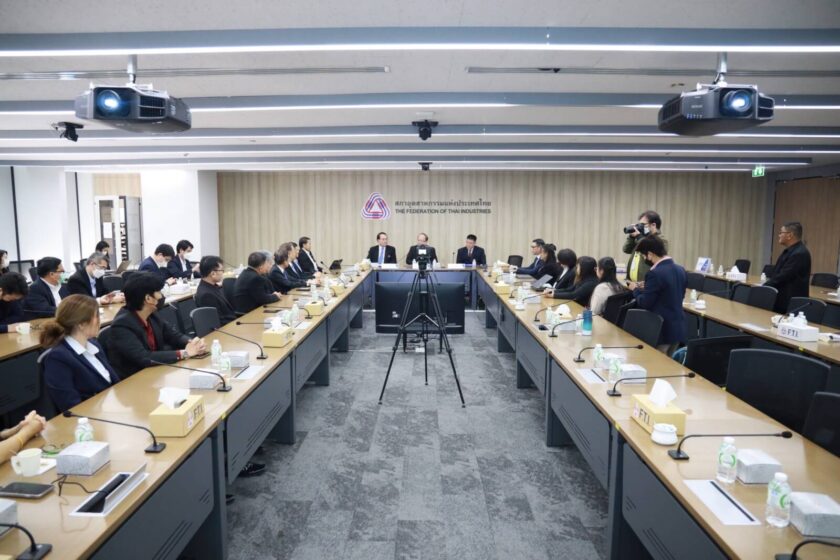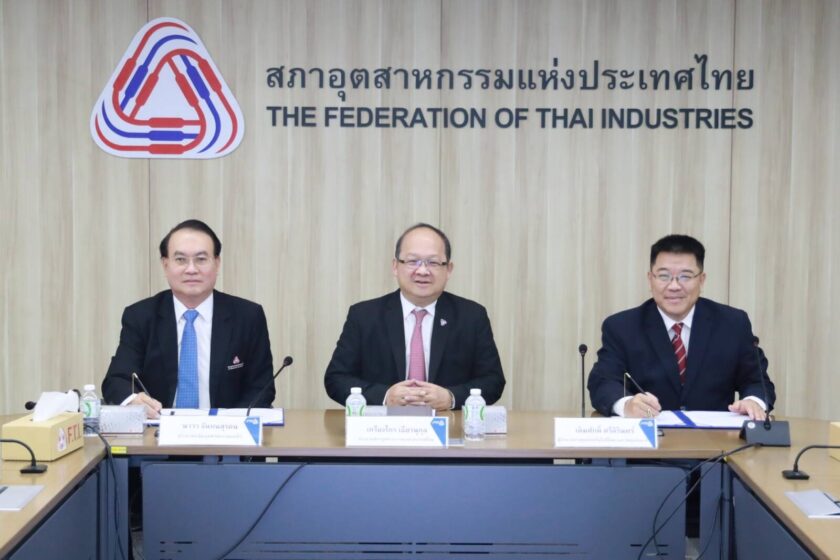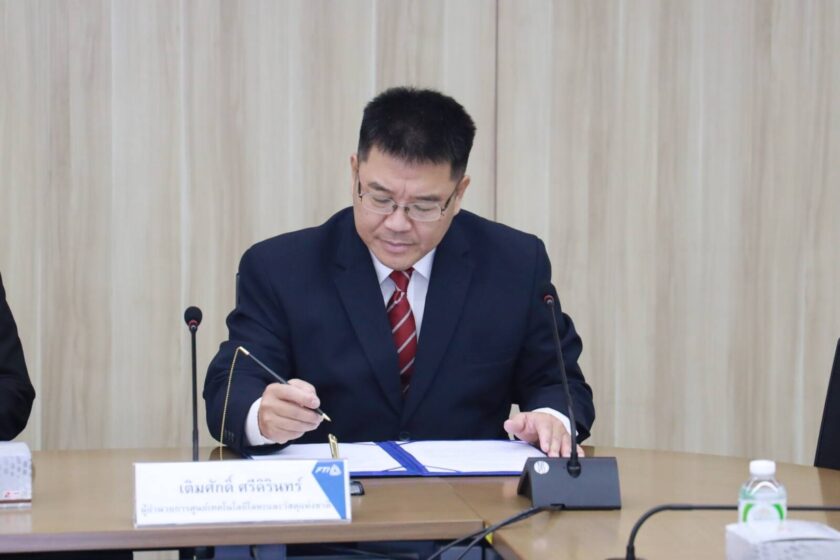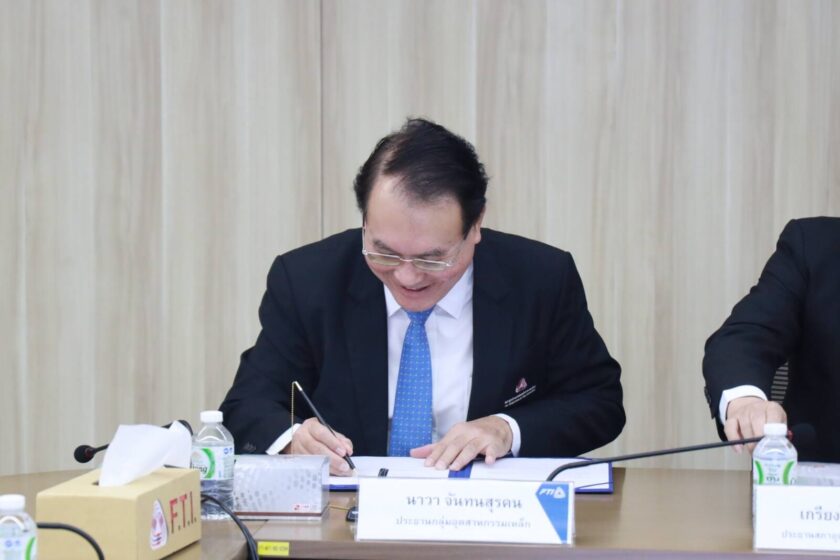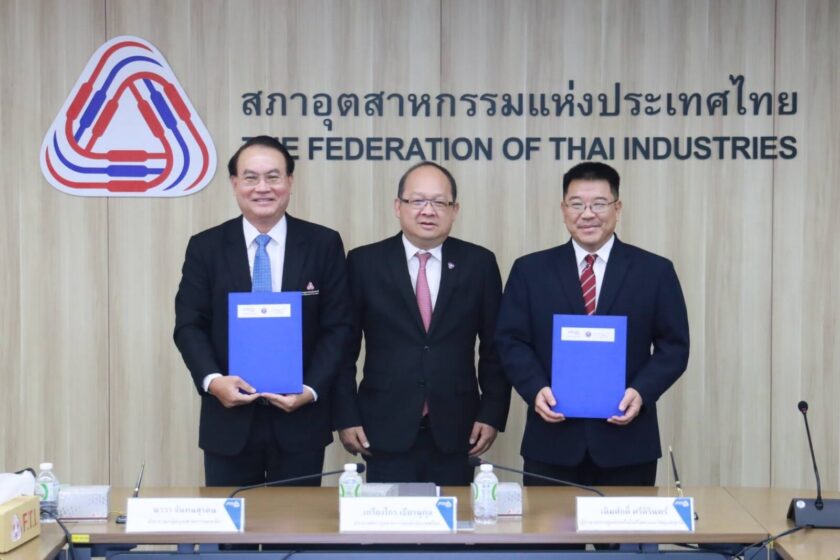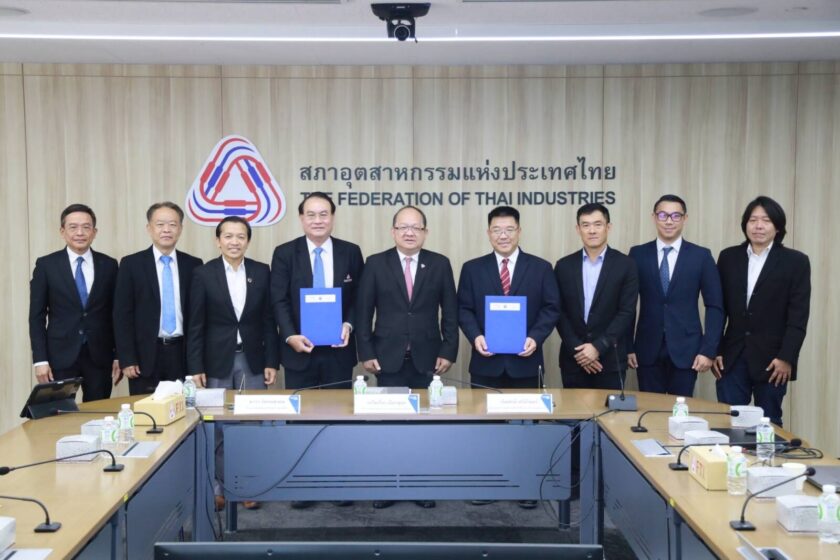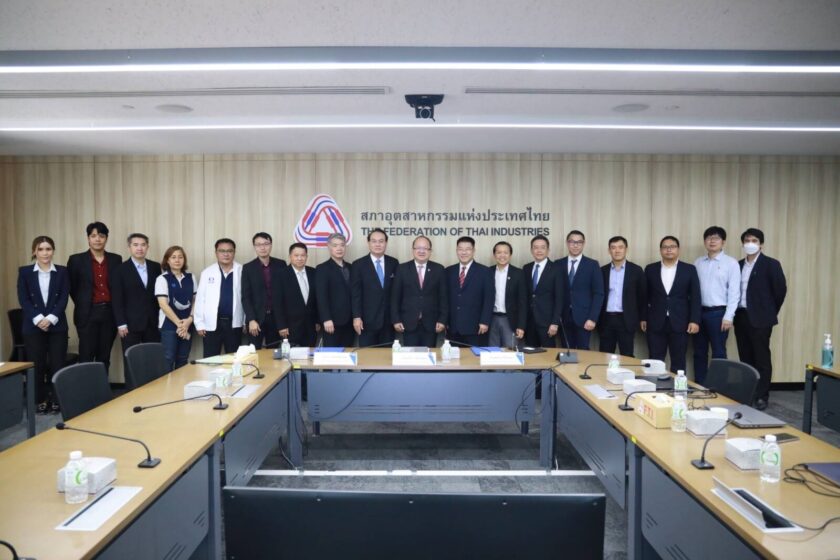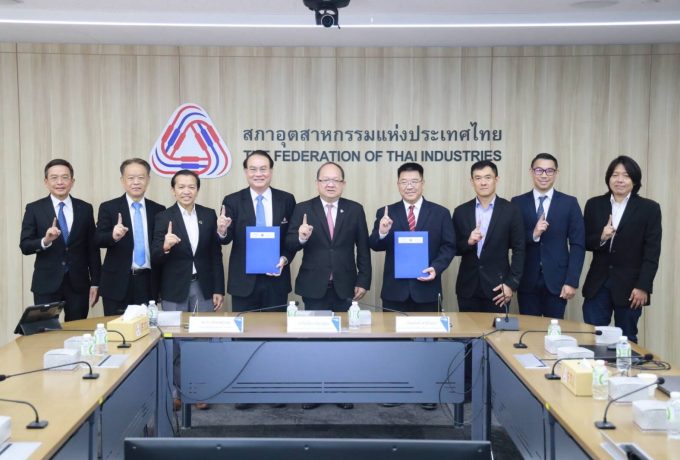
February 8, 2024, Passion (802) room, 8th floor, Federation of Thai Industries, Bangkok
The National Metal and Materials Technology Center (MTEC) under the National Science and Technology Development Agency (NSTDA), led by Assoc. Prof. Dr. Toemsak Srikhirin, MTEC Director, signed a memorandum of cooperation to develop an environmental database for the steel industry in response to the Carbon Border Adjustment Mechanism (CBAM) with Mr. Nava Chantanasurakon, Chairman of the Steel Industry Group, Federation of Thai Industries (FTI). Mr. Kriengkrai Thiennukul, Chairman of the Federation of Thai Industries (FTI), hailed this collaboration as a positive step for the steel industry.
This collaboration aims to establish a Life Cycle Assessment (LCA) for Thailand’s steel production sector. The LCA will be built upon environmental data collected directly from steel factories (Life Cycle Inventory, LCI) and supplemented by modeling studies. The research team is collaborating with seven participating steel companies: four steel sheet factories, one pipe steel factory, one wire steel factory, and one steel profile factory. By studying the inputs and outputs of each production process, the research team and participating companies will identify opportunities to improve efficiency and reduce environmental impacts, particularly greenhouse gas emissions. This initiative aligns with the government’s policy to achieve carbon neutrality by 2050 and net-zero greenhouse gas emissions by 2065.

The Chairman of the Federation of Thai Industries (FTI) emphasized the critical role of the steel industry in Thailand’s economic advancement. He highlighted the industry’s focus on industrial development and cost management within production processes to mitigate environmental impacts, particularly emphasizing the shift towards “Green Steel” characterized by sustainability and environmental conservation. The announcement of the Carbon Border Adjustment Mechanism (CBAM) by the EU in early October 2023 was noted as a significant development directly affecting operators in the Thai steel industry. In 2023, finished steel products accounted for 4.3% of total exports to the EU, with a value of 2.466 billion baht. This significant trade necessitates compliance with CBAM for Thai steel exporters.
“The Federation of Thai Industries (FTI) emphasizes the importance of elevating the Thai industrial sector under the ONE FTI policy from traditional industries, consisting of 46 industrial groups and 11 clusters covering 76 provinces, to new industries or Next-Gen Industries related to climate change. The FTI has established the Climate Change Institute (CCI) to provide knowledge to operators regarding the Carbon Footprint of Products (CFP) and Carbon Footprint for Organizations (CFO) and present views to the government to prepare Thailand for environmental measures from abroad, such as CBAM. FTI has developed the FTIX platform for carbon credit trading.” “FTI believes that industry-wide initiatives to study environmental impacts and create product-specific environmental databases are essential first steps. These efforts will pave the way for greener production processes and the development of eco-friendly products with future environmental labeling initiatives.” Mr. Kriangkrai said.

Mr. Nava Chantanasurakon, Chairman of the Iron and Steel Industry Group, FTI, stated, “The overall development of the steel industry and the business competitiveness situation in the steel industry, as you are all aware from various news sources, focuses on developing production processes towards Green Steel and reducing environmental impacts. The steel group recognizes the importance of this. It is committed to promoting and supporting its members in preparing organizations and steel production processes to support the transition to a Green and Circular Economy. This starts with studying and compiling environmental databases for steel products, which has garnered significant interest from group members. The project aims to establish two comprehensive databases for the Thai steel industry: a gate-to-gate and a cradle-to-gate databases. These databases will capture environmental data throughout the steel production process in Thailand. The goal is to establish databases for both Long products, totaling 2 databases, and Flat products, totaling 5 databases, for a total of 7 databases.”

Assoc. Prof. Dr. Toemsak Srikhirin, Director of the National Metal and Materials Technology Center (MTEC), stated, “MTEC has a mission in research and development, as well as knowledge transfer for application in the industrial sector, communities, and society, for the benefit of national development. This collaborative effort to create environmental databases demonstrates a strong commitment to environmental responsibility. These databases will directly support compliance with the EU’s CBAM measures. The Information Technology Institute for Sustainable Development will develop and manage the databases. This aims to analyze data and create opportunities to enhance production efficiency, leading to more environmentally friendly production practices.”
The signing ceremony signifies collaboration in compiling Environmental Product Life Cycle Inventory (LCI) data, which serves as the gate-to-gate and cradle-to-gate databases for products in the steel industry (from raw materials to finished products). The assessment includes environmental impact data per unit of goods or products, and participating companies are required to jointly collect production data retrospectively for 12 months to obtain accurate production data. This process encompasses the entire lifecycle, from raw materials to finished products.



